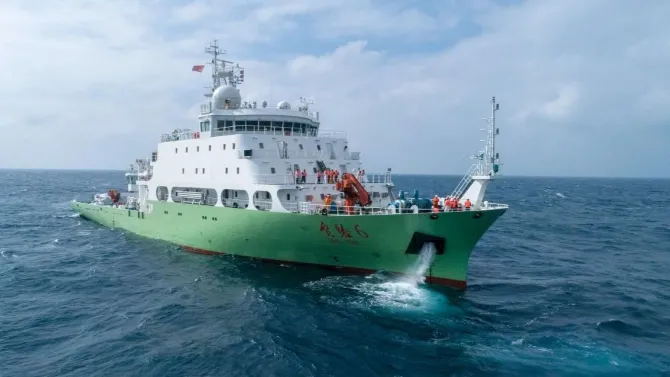
China may use data in any adversarial military scenario against India and/or other countries in the immediate Indian Ocean neighbourhood, including the US with its military base in Diego Garcia, as a result of the recent encounters of Chinese “research” vessels in the region.
Sri Lanka, an island nation that borders India, has made the decision to remove a ban on foreign research ships calling at its ports starting in 2025. According to media accounts, the embargo was put in place in response to serious security concerns expressed by the US and India in response to repeated requests for docking by advanced Chinese surveillance vessels.
Ali Sabry, the foreign minister of Sri Lanka, informed NHK World Japan of the decision. According to Sabry, his government cannot impose various regulations on different nations and merely obstruct China.
According to a report from NHK World Japan, he further stated that his nation will not support one party over another in a conflict. The ban will last until January of the following year. Next year, according to Sabry, Sri Lanka won’t prohibit foreign research ships from using its ports.
In January, Sri Lanka prohibited foreign research vessels from landing at its port due to concerns expressed by India. It had declared earlier this year that the restriction would remain in place save for a Chinese warship.
Chinese research vessels have been moving more often in the Indian Ocean. New Delhi had warned Colombo not to permit these vessels to land at its ports, fearing they were spy ships.
In recent years, Chinese ships have anchored in Colombo for scientific study, according to agreements between Chinese and Sri Lankan organisations.
The Chinese research ship Shi Yan 6 made a port call in Colombo, Sri Lanka, for a few days in October 2023. Meanwhile, the naval ship Yuan Wang 5 made a port call at Hambantota, southern Sri Lanka, in 2022. India was concerned that these ships might be used for surveillance in the area.
Through November 2023, two Chinese espionage ships were permitted to dock in Sri Lankan ports; one was required for refuelling and the other for investigation.
October 2023 saw the arrival of the Chinese research ship Shi Yan 6 in Colombo harbour, Sri Lanka. Beijing stated that the ship was doing geophysical scientific research in association with the National Aquatic Resources Research and Development Agency (NARA) of the island nation.
Prior to Shi Yan 6’s arrival in Sri Lanka, the US had voiced concerns to that country. The Chinese naval ship Yuan Wang 5 made a replenishment docking at Hambantota in southern Sri Lanka in August 2022.
The island nation is a major stop for marine commerce between South East Asia and West Asia, which is a part of the global trade route, and is situated at a vital spot in the Indian Ocean.
Chinese influence in the Indian Ocean region
As global east-west shipping channels travel through the archipelago, the Maldives, another island nation in the Indian Ocean, has emerged as a geopolitical hotspot in recent years. The Maldives’ location close to vital sea lanes is significant for China’s energy supply. The Muizzu government signed two military agreements with China in March of this year.
China promised to support the Maldives militarily at no cost as part of the agreements. This stands in sharp contrast to the island nation’s custom of accepting Indian military aid.
The Chinese ‘research’ vessel Xiang Yang Hong 3, which has been observed in the Maldives, was the subject of another agreement inked by the Muizzu government. This arrangement could strengthen their bilateral ties by having an impact on maritime research in the Indian Ocean Region (IOR).
China may use data in any adversarial military scenario against India and/or other countries in the immediate Indian Ocean neighbourhood, including the US with its military base in Diego Garcia, as a result of the recent encounters of Chinese “research” vessels in the region.
Scientific research vessels can also employ their instruments for naval surveillance, obtaining information about nearby foreign military installations and vessels.
